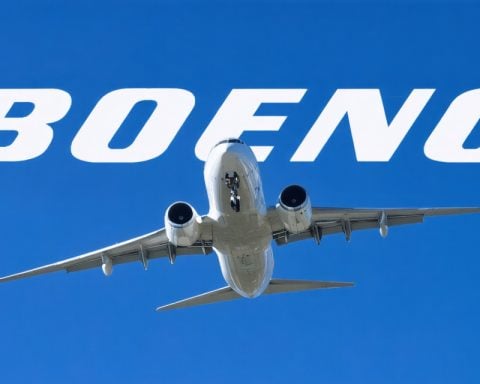- FiscalNote sold Oxford Analytica and Dragonfly to Dow Jones for $40 million, marking a strategic pivot and focus on core competencies.
- This transaction reduces FiscalNote’s senior term loan, improving their balance sheet and projecting a debt reduction of over 60% within a year.
- By streamlining operations, FiscalNote aims for increased agility, efficiency, and profitability.
- Dow Jones gains enhanced capabilities in geopolitical risk assessment, integrating these assets into its Risk & Compliance service.
- The potential $4 million tax benefit from the deal showcases strong financial planning.
- The transaction is set to close by early 2025, pending regulatory approvals, with optimism for strategic growth and opportunities.
- Both companies look to emerge stronger: FiscalNote through debt reduction and efficiency, and Dow Jones through expanded service offerings.
Underneath the quiet surface of corporate maneuvering, FiscalNote made waves with a $40 million sale that clarified their future. The decision to part ways with Oxford Analytica and Dragonfly signals a focused pivot toward core competencies, shedding excess baggage in favor of streamlined efficiency. By passing these assets into the hands of Dow Jones, they not only simplified their portfolio but also set the stage for a leaner, more agile company.
Visualize a steadfast ship lightening its load; FiscalNote aims to sail with speed and precision. The transaction is more than just a financial play. It represents a strategic recalibration, slashing their senior term loan and nudging their balance sheets into favorable territory. As debt burdens lighten, productivity and profitability rise, painting a promising picture of what lies ahead.
Dow Jones, in acquiring these new pieces, broadens its horizon in geopolitical risk assessment, folding into its well-established Risk & Compliance service. The anticipated $4 million tax benefit highlights savvy financial foresight.
The deal, expecting closure by early 2025, awaits green lights from regulatory bodies, but optimism fills the air. FiscalNote’s CEO envisions a future where debts dwindle by over 60% in just one year. Meanwhile, News Corp stands to gain a potent boost, capital ready and waiting at $1.75 billion, poised for opportunity.
This narrative unfolds as a reminder: strategic focus and judicious shedding of non-essentials can propel entities into newfound realms of success, setting a precise course toward sustainable growth and resilience.
Why FiscalNote’s $40 Million Move Signals a New Era for Geopolitical Risk Assessment
How-To Steps & Life Hacks
1. Align Corporate Strategy: Begin by identifying core competencies and areas of strength. FiscalNote’s realignment was a decision to concentrate on their primary services, something any business should consider when aiming for sustainable growth.
2. Financial Streamlining: Like FiscalNote, businesses can benefit from paying down debt to improve financial health. This could involve selling non-core assets, similar to FiscalNote’s divestiture, to slash debt and enhance balance sheets.
3. Partner with the Right Acquirer: Select partners who can extract value from non-core assets, as demonstrated by FiscalNote’s sale to Dow Jones—helping both companies strategically in their respective domains.
Real-World Use Cases
– Corporate Restructuring: Companies seeking to improve efficiency can learn from FiscalNote’s pivot. Strategic shedding of non-essential branches helps refocus and best utilize resources.
– Geopolitical Risk Assessment: Dow Jones’ expansion into geopolitical risk analysis signifies how media companies can diversify into relevant niches, integrating data-intensive services that complement existing offers.
Market Forecasts & Industry Trends
The trend towards specialization and refined corporate focus will likely continue as companies navigate economic uncertainties. The rise in geopolitical tensions increases demand for precise risk assessment tools, suggesting growth in sectors involved with analytics and compliance services. Dow Jones is positioning itself well by expanding its Risk & Compliance division to meet these needs.
Features, Specs & Pricing
While exact financial specifics of the acquisition terms remain private, analysts project significant debt reduction for FiscalNote, which would likely boost operational efficiency and lower financial pressure.
Security & Sustainability
FiscalNote’s move contributes to longer-term sustainability by allowing concentration on high-value offerings, ensuring resilience against financial volatility and enhancing appeal to investors.
Insights & Predictions
Expect FiscalNote to continue leveraging their enhanced capital position post-sale by possibly investing in technology and innovation within their core areas. For Dow Jones, the incorporation of new services might lead to enhanced analytics and risk management offerings.
Pros & Cons Overview
Pros:
– Financially strengthens FiscalNote by reducing debt.
– Extends Dow Jones’ capabilities in risk assessment.
– Allows both companies to concentrate on strategic goals.
Cons:
– The sale depends on regulatory approvals, which may cause delays.
– Risks of transition for both companies as they integrate new and shed old assets.
Actionable Recommendations
– For Businesses: Evaluate non-core assets and strategize on optimizing main revenue channels.
– For Investors: Monitor companies like FiscalNote for improved shareholder value as debt decreases. Companies shedding non-strategic assets often experience a profitability uptick.
Conclusion
This move underscores a broader industry trend towards specialization, debt reduction, and strategic alignments to foster growth and adapt to changing market demands. Businesses should heed the lessons from this strategic corporate maneuvering to optimize operations for future challenges.
For more insights into business strategies and industry trends, visit Wall Street Journal and FiscalNote.




















